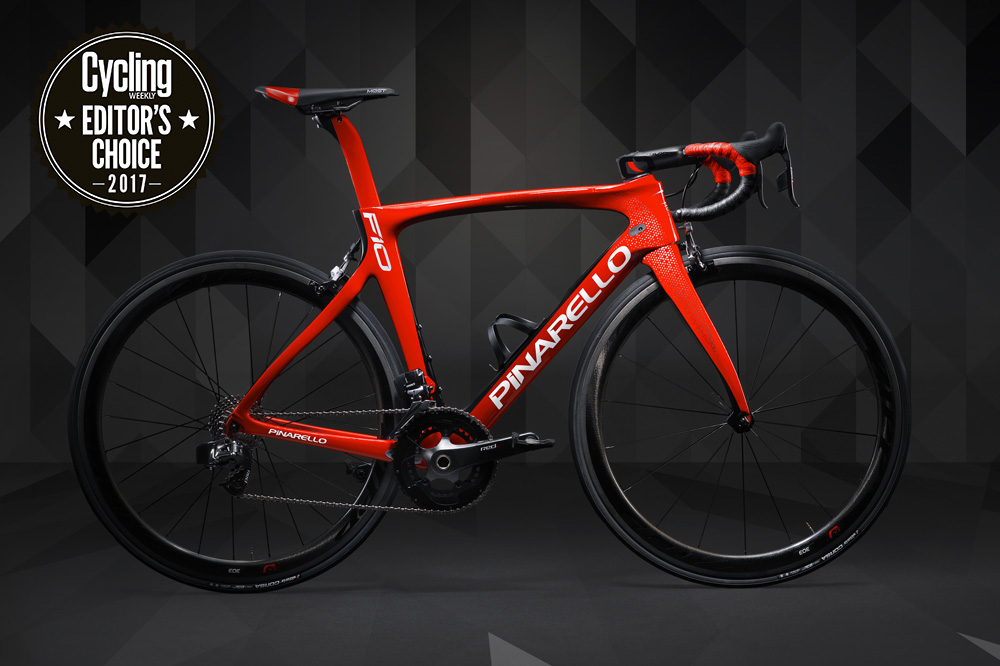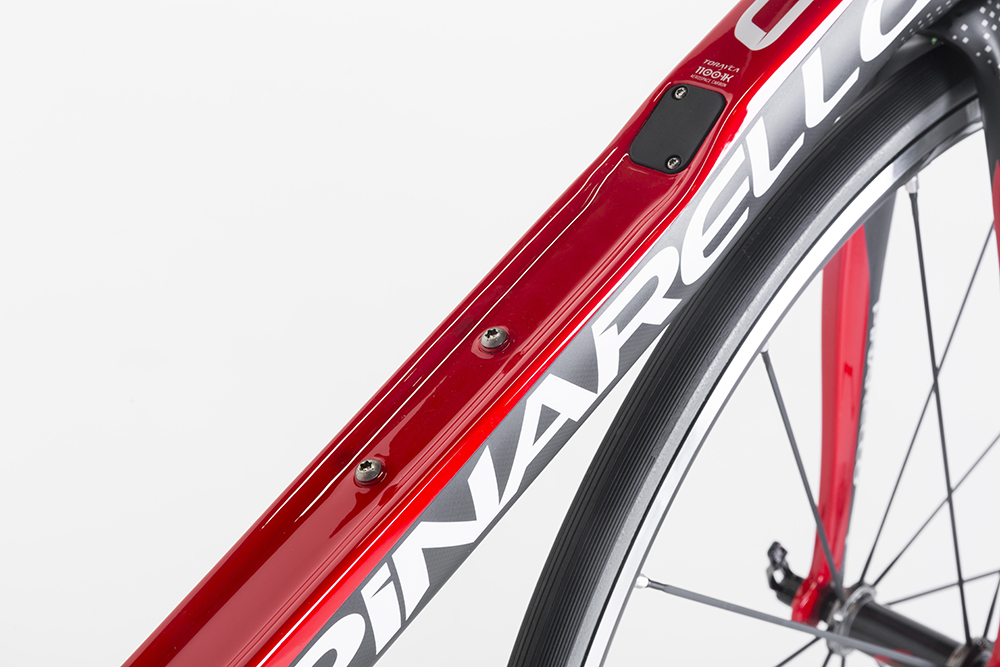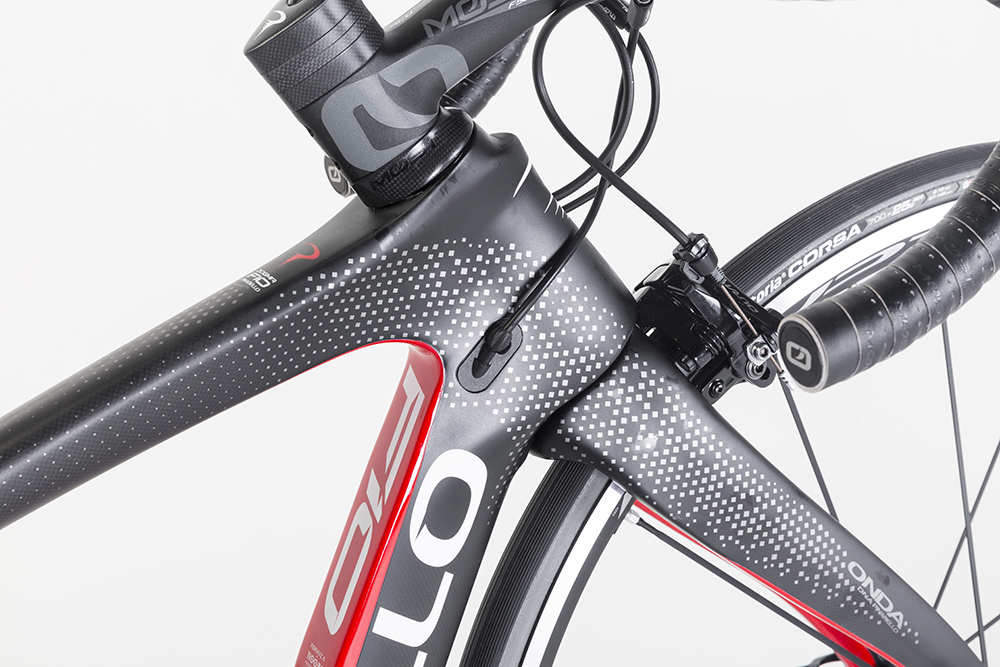Pinarello Dogma F10 review
The Pinarello Dogma F10 is probably the most famous bike on the planet, and it's also one our favourites

Its successes under the Team Sky riders, including a Tour de France Yellow Jersey and victory at La Vuelta, have made Pinarello, and the Pinarello Dogma F10, a household name.
In the greatest competition of them all - the Cycling Weekly 2017 Editors Choice - it's its great specification, frame and ride quality as well as it ease of use that has earned the Pinarello Dogma F10 a top spot.
The Pinarello Dogma F10 has become a hugely popular bike that should not only be judged by Team Sky's success on it in Grand Tours: it's a great performance bike that, as we've learnt from our intensive testing, you can easily live with for day-to-day riding.
As is well documented, not at least by us here at Cycling Weekly, the Pinarello Dogma F10 looks exactly like the Dogma F8 and that is with good reason.
When Pinarello developed the Dogma F8 in conjunction with Team Sky for the 2014 season, the riders were adamant that they wanted to the geometry to stay the same as that of the outgoing Dogma 65.1.
The result was a faster bike with classic Pinarello handling that Team Sky loved and that went on to win two Tours de France editions. So when it was the F8’s turn to be updated Pinarello was keen not to take anything away from what was born to be a fast bike.
To give the F10 a thorough update, but without necessarily changing to much of the bike's essential character, the Pinarello boffins focused on four main properties of the Dogma: to maintain handling, increase stiffness, improve aerodynamic performance and reduce weight.
The latest race content, interviews, features, reviews and expert buying guides, direct to your inbox!
Minute development at key areas
The down tube generates more then 15 per cent of the overall drag of a bike and directly affects how the air flows around the bottles and seat tube, so this was a big part of the development of the Pinarello Dogma F10.
The back of the down tube now has a concave shape that almost houses the bottle cage. This is said to save to save around 12 per cent in drag. The new E-Link is integrated here too, but as our test bike used mechanical gears there's a black plastic plate to hide the hole.

The fork has been reworked with fins added to the bottoms of the legs to help reduce drag further. The fins are smaller than those of the Bolide fork – the time trial bike for which the technology was developed. Pinarello says the F10’s fins are a compromise between aerodynamics and weight.
Pinarello’s asymmetry concept has been enhanced (beefed up material on the drive side and reduced area on the non-drive side) to improve stiffness and balance of the bike.
And finally the Torayca T1100 1K carbon is used again, a high-tensile material used in specific high-stress areas such as the down tube to maintain ultimate performance in all situations.
For the price you can expect Shimano Dura-Ace, Fulcrum Racing Zero alloy wheels with Vittoria Graphene tyres, Pinarello's MOST aero handlebar and stem and a Fizik Arione saddle.
These all complement the frameset well, although all this isn't totally top-end kit. The Fizik saddle isn't the carbon-railed version and there are certainly wheelsets on the market that would better showcase the bike - when pushing it its hardest at the races we did swap the wheels out.
However, without a doubt you'll be able to do everything you want with the bike out of the box, and at £7,750 we'd expect nothing less.
Subtle but effective differences
Unsurprisingly, with so much shared geometry the new Pinarello Dogma F10 rides pretty similarly to its predecessor the F8. However, the small changes to the frame are noticeable and they do improve the ride for the better. The differences are subtle, but what is most notable is the firmness of the ride, especially at the front end.

We certainly noticed more road buzz in testing, despite using the newer wheels with wider internal rim diameters shod with wider tyres that now can be accommodated by the Pinarello Dogma F10.
25s are not a problem any more and you could potentially squeeze a set of 28s in. This is in part thanks to the new Shimano Dura-Ace R9100 brake callipers.
The best thing about the Pinarello's ride is that it’s good at everything and it isn't a pig to live with on any type of ride. From day-to-day cruises to racing crits, even commutes (don't judge us!) the F10 takes it all in its stride and does it very well.
We haven't tested for its aero properties, though a 2017 Tour de France win should count for something. It isn't the lightest bike we've tested – Pinarello refuses to get involved in competitions to see who can build the lightest frame – but it is damn stiff.
The F10 – thanks to this increase in stiffness – feels a little livelier than the F8. It feels a little more inspiring, something slightly lacking in the older model. The F10 definitely feels edgier and there's more sensitivity than before.
Value is often hard to judge, especially when it comes to high-end products. Here you are getting a thoroughbred that you'd happily use every day. It has been tried and tested by both the world’s top cycling team and it looks absolutely stunning.
The Pinarello Dogma F10 is available in eight different designs - including the Red Magma in the featured image here and the Black Lava in the other images. In addition, you can choose to use the 'My Way' frame design option to put your own spin on the theme.
Symon Lewis joined Cycling Weekly as an Editorial Assistant in 2010, he went on to become a Tech Writer in 2014 before being promoted to Tech Editor in 2015 before taking on a role managing Video and Tech in 2019. Lewis discovered cycling via Herne Hill Velodrome, where he was renowned for his prolific performances, and spent two years as a coach at the South London velodrome.